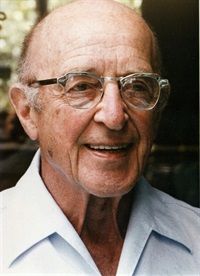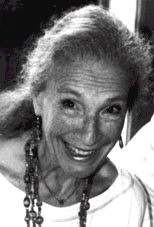EP85 Invited Address 12a - Rogers, Kohut, and Erickson: A Personal Perspective on Some Similarities and Differences - Carl R. Rogers, PhD
- Average Rating:
- Not yet rated
- Topic Areas:
- Invited Addresses | Psychotherapy | Milton Erickson
- Categories:
- Evolution of Psychotherapy | Evolution of Psychotherapy 1985
- Faculty:
- Carl Rogers, PhD | Ruth Sanford, MA | Miriam Polster
- Duration:
- 1 Hour 28 Minutes
- Format:
- Audio Only
- Original Program Date:
- Dec 15, 1985
- License:
- Never Expires.
Description
Description:
Educational Objectives:
- To list major facets of the philosophy, theory, practice, and application of the client-centered/person-centered approach, and compare it with the views of Kohut and Erickson. This comparison is stimulated by recent articles by Kahn and Gunnison.
- To know current thinking about topics such as empathy, intuition, congruence, caring, and trust in the client/patient, by making these comparisons.
- To explain the differing attitudes toward research and the testing of the truth-value in theory.
*Sessions may be edited for content and to preserve confidentiality*
Credits
Faculty

Carl Rogers, PhD Related Seminars and Products
Carl Rogers, Ph.D, was an influential American psychologist and among the founders of the humanistic approach (or client-centered approach) to psychology. Rogers is widely considered to be one of the founding fathers of psychotherapy research and was honored for his pioneering research with the Award for Distinguished Scientific Contributions by the American Psychological Association (APA) in 1956. Carl received his Ph.D. in 1931 from Teachers College, Columbia University. Rogers has served as president of the American Psychological Association, the American Association for Applied Psychology, and the American Academy of Psychotherapists. He is the recepient of eight honorary doctorates and the Humanist of the Year Award from the American Humanist Association. The American Psychological Association offered him two awards: the Distinguished Scientific Contribution award for research in teh field of psychotherapy, and the first Distinguished Professional Contribution Award. Rogers also received the Award of Professional Achievements from the American Board of Professional Psychology. He is the author or co-author of 12 books and numerous articles in psychological, psychiatric, and educational journals dating from 1930.

Miriam Polster Related Seminars and Products
Miriam Polster, Ph.D, is co-director of the Gestalt Training Center in San Diego, and Assistant Clinical Professor at the Department of Psychiatry, School of Medicine, University of California, San Diego. Along with her husband, Erving Polster, she is co-author of a book on Gestalt therapy. She received her Ph.D. in Clinical Psychology from Case Western Reserve University in 1967.


